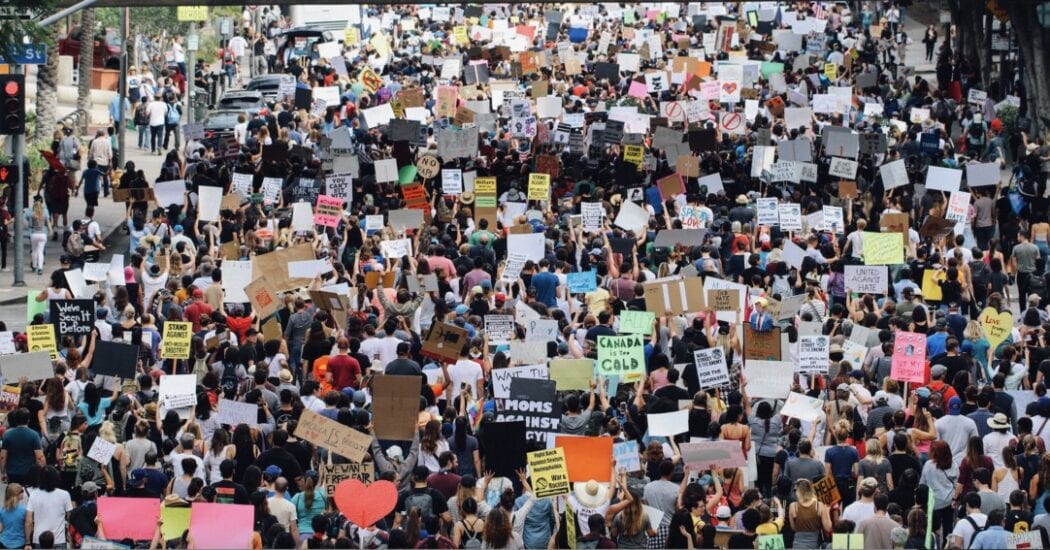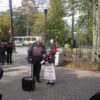
KJIPUKTUK (Halifax) – The other day I listened to author and environmentalist Bill McKibben talk about the hard lessons he’s learned trying to bring about action on climate change over the past several decades. The biggest mistake, he explained, was thinking that he and other activists were involved in an argument with government and industry. They believed that if they just presented enough evidence and facts, people in power would listen and take steps to avert a global catastrophe. But they were wrong, McKibben admits now. It was never an argument, he says, but rather a fight, and like all fights, it’s about power and money.
My father, Bert Deveaux, shared a similar insight fifty years ago in an essay titled “The Enemies Within Community Development,” which he co-authored with my mother, Kaye McCormack. The essay describes what he learned as a community organizer in the sixties, working first with the Sioux people on a reserve outside of Brandon, Manitoba, then in economically depressed Cape Breton, followed by northern New Brunswick, where he organized woodcutters and truckers who were at the mercy of the Irving and McCain empires. What he saw, time and time again, was that as soon as the community exerted any real power, the government would swoop in to cancel their funding, fire organizers and, eventually, drop the community development program altogether. The corporations involved would directly intimidate and threaten those who spoke out.
What my father understood back then—and other activists have realized too over the years—is that those in power want to be seen as helping, but they don’t actually want to change things. And why would they? Change is uncomfortable, especially when it involves systems change. More importantly, why would those who are on top want to voluntarily give up their power, status, and money so that others can have their fair share?
So yes, it is a fight, and it always has been.
One of the more insidious aspects of this fight is how good people get co-opted. Government and corporations dangle job opportunities and funding for various initiatives, ranging from environmental protection to tackling homelessness, and we compete amongst each other for a little piece of the pie. Of course, getting (and keeping) the job or funding requires an act of contortion to fit into the role or mandate—remember, the goal of government and big business is to be seen as helping. Before long, many well intentioned activists and organizations lose sight of their ambitious, radical goals and settle for “putting lipstick on a pig.”
But there are always mavericks who refuse to capitulate. I believe my father was one of them. Over the years, I watched him challenge the status quo—as a community organizer, editor of a radical newspaper, CBC journalist, and independent documentary producer. There were some victories and many defeats. Still, by helping people see what was wrong and what was possible, he changed lives, and they in turn changed him.
Fast forward fifty years and we’re still caught in the same wicked web, except today wealth and power have become much more concentrated in the hands of fewer people, and the future of life on earth hangs in the balance. We’re running out of time to shift the balance of power needed to reduce GHG emissions, tackle racial injustice, make good on promises to provide clean drinking water and liveable housing in Indigenous communities, and on and on it goes.
In a nutshell, we can’t keep doing what we’ve been doing, because it simply isn’t working. We have to stop jumping through the hoops cooked up by those in power: the endless studies that take years and are never implemented, the advisory committees that make us think we have a voice but nothing ever comes of it, the time consuming grant applications and submissions. Sure, a few of us might be singled out for rewards, which helps uphold the appearance of a fair and benevolent system. But in our heart of hearts most of us know this game is rigged and we must stop playing it if there’s to be any chance of turning things around.
So what can we do instead?
Bill McKibben says our only hope is to shift the zeitgeist—the defining spirit or narrative of our time—and grow a movement.
This approach doesn’t involve trying to persuade government or corporations that you’re right and they’re wrong. Instead, you stop wasting your energy on them and speak directly to those who have been duped into thinking the system was somehow just and democratic. You pull back the curtain so everyone can see what’s really going on and you offer another way—a path to social and racial justice, equity, and healing our relationship with nature, built from the ground up.
We don’t all have to agree on the solutions or even the priorities. What binds us is our awareness that we must overturn the status quo, because if we don’t, we’re screwed. The status quo isn’t going to suddenly wake up and relinquish its hold. And unless we can replace the existing status quo with a radical, transformative, and wholesome alternative that reflects what we care about, the suffering, violence, and destruction will continue.
As a first step, those of us challenging the status quo must work together. Whether we’re fighting clearcutting, a megadam, environmental racism, the failure to uphold treaty rights, or the lack of affordable housing and adequate health care, we must stand as one and declare that business as usual is no longer an option. Those who have broken the social contract must step aside. We must revoke their moral authority and power to govern us.
In order to take such a stand, we need to step into our own power. We must stop thinking of ourselves as powerless in the face of big corporations and governments that time and time again betray our trust. We stop asking those in power to do the right thing. We start telling them what they must do, including honouring the existing laws, legislation, and agreements that people fought so hard for: the Paris Agreement, UNDRIP (United Nations Declaration on the Rights of Indigenous People), the Marshall Decision, and so much more.
We don’t ask for more studies to prove what we already know. We demand action, not promises. We call out the lies and hold up the truth for everyone to see, as many times as it takes. We stand together in our multiplicity of voices and causes and make it clear that we will not be divided by those who want us to fight over the few crumbs we’re tossed from time to time. We won’t accept the jobs vs. environment paradigm being shoved down our throats. We’ll fight the game masters of this Hunger Game, not each other.
We start wherever we are, and exert our influence wherever we can. For some that might be in their family, neighbourhood, or school; for others it might extend to their municipality or region; a few will have the ability to reach far beyond their borders. Big or small, our voices and actions are interconnected and will grow through our consistent and collective efforts.
If you’ve made it to the end of this article, perhaps you’re already beginning to doubt whether such a big shift is possible, and if you even have the courage to try. That’s understandable, after all we’ve been told repeatedly that we don’t understand how complicated the issues are, that we need to leave such things to the experts. But ask yourself, how’s that working so far?
If you don’t believe in yourself yet, please know that I believe in you. If you have to fake it till you make it, that’s okay. At some point you’ll realize you’re already there, standing with others who are also finding their voices and the courage to use them.
Tynette Deveaux is a Halifax editor, writer, and mother who wants action on climate change. This essay was first published on Medium.com, and is republished here with the author’s kind permission.
Check out our new community calendar!
With a special thanks to our generous donors who make publication of the Nova Scotia Advocate possible.
Subscribe to the Nova Scotia Advocate weekly digest and never miss an article again. It’s free!




This resonates with myself especially the political manipulation of governments past and present to be magicians by creating the perception that by establishing or funding community based organization whose initial intentions were to be about those suffering disparity and inequality in up being useful to governement. the few benefit not “the one or collective” the originally organized to serve.
My question to the Advocate is with the vast majority of the commons depending on the LORD for sustenance how does once bolster courage to become civically engaged?